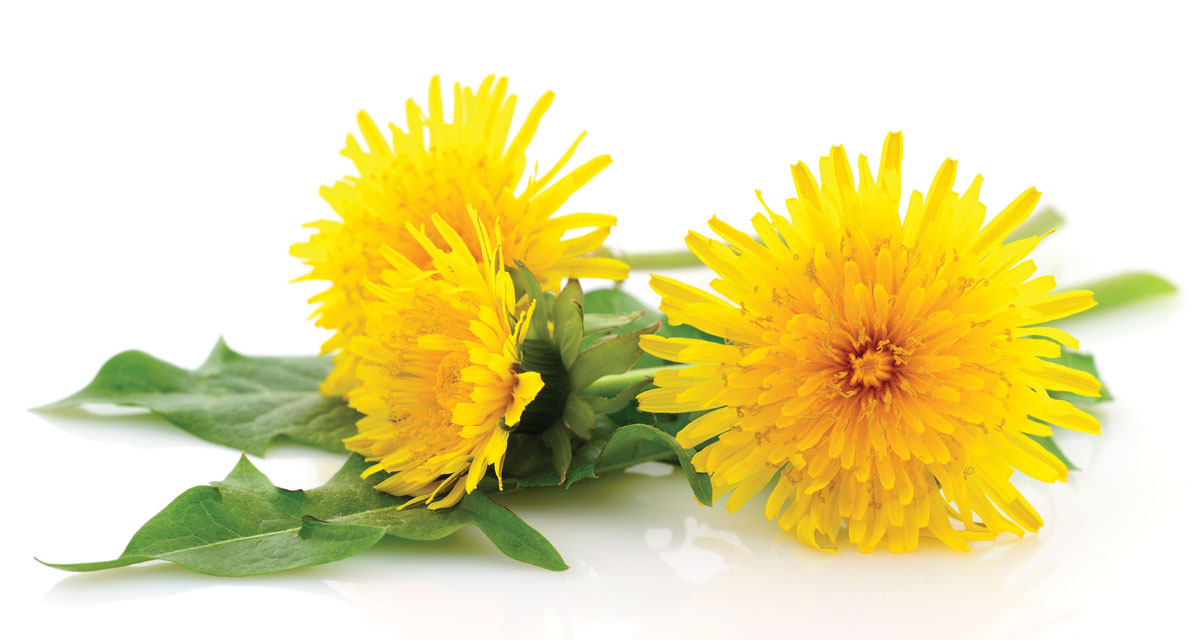Weed? Or a flower? How do you see a dandelion? With the arrival of spring, you have probably seen a yard or two full of bright yellow or puffy, white flowers. While some consider them to be an eyesore, dandelions are quite an interesting little plant.
- For instance, the dandelion flower opens in the morning, but closes up at night.
- When the dandelion goes to seed (the white, puffy version of the dandelion), the seeds may travel five miles.
- The name “dandelion,” comes from the French, “dent de lion,” which means “lion’s tooth.”
- Dandelion root can be used as a substitute for coffee.
While many consider dandelions a nuisance, and millions are spent every summer on pesticides to remove unwanted flowers like the dandelion, the dandelion offers an extraordinary number of health benefits. So much so, that in the past, people actually removed grass from their yards in order to grow more dandelions (as well as other herbal flowers, including chamomile).
Dandelions are edible.
While your hope of getting them out of the yard has probably not been for culinary purposes, dandelions are a yummy and nutritious little flower. The flower is edible from the root up, and they can be cooked or eaten raw.
Dandelions are full of vitamins and minerals.
Dandelions pack a powerful nutritional punch with vitamin A, Beta-carotene, vitamin C, Vitamin B, vitamin D, vitamin E, potassium, calcium, copper, iron, manganese, zinc, and phosphorus.
Dandelion tea may help you lose weight.
Studies aren’t definitive, but some research has pointed to dandelion’s impact on body weight and fat storage. And since dandelions are healthy and edible, if you like tea—why not give it a try?
Dandelions may help with bones.
Because dandelion greens are full of calcium and vitamin K—they may be beneficial for healthy bones.
Dandelions may boost your immune system.
Dandelions have been shown to have antimicrobial and antiviral properties, and with those two attributes, they may help your body fight infections.
Dandelions contain powerful antioxidants.
Antioxidants can help prevent aging and certain diseases! Dandelions have been shown to protect cells from damage, reduce inflammation, fight cancer, and lower cholesterol!
Dandelions can decrease constipation.
Because dandelion root is a wealthy source of prebiotic fiber inulin, dandelions may help “move things along,” so to speak, and increase movement in your gastrointestinal tract.
Dandelions can operate as a diuretic.
As a natural diuretic, dandelion can help flush excess fluids from the body.
A few words of caution.
As beneficial as dandelions have been shown to be, there are risks and side effects, especially for people who have allergies to ragweed and related plants. Also, dandelions may have an adverse impact when combined with diuretics or antibiotics.
And as tempting as it may be to run out to the yard and pick your own salad—be cautious. If your lawn has been treated with any chemicals, don’t eat your dandelions. You’ll need to get your dandelions from the grocery, so that they are free of harmful chemicals.






















